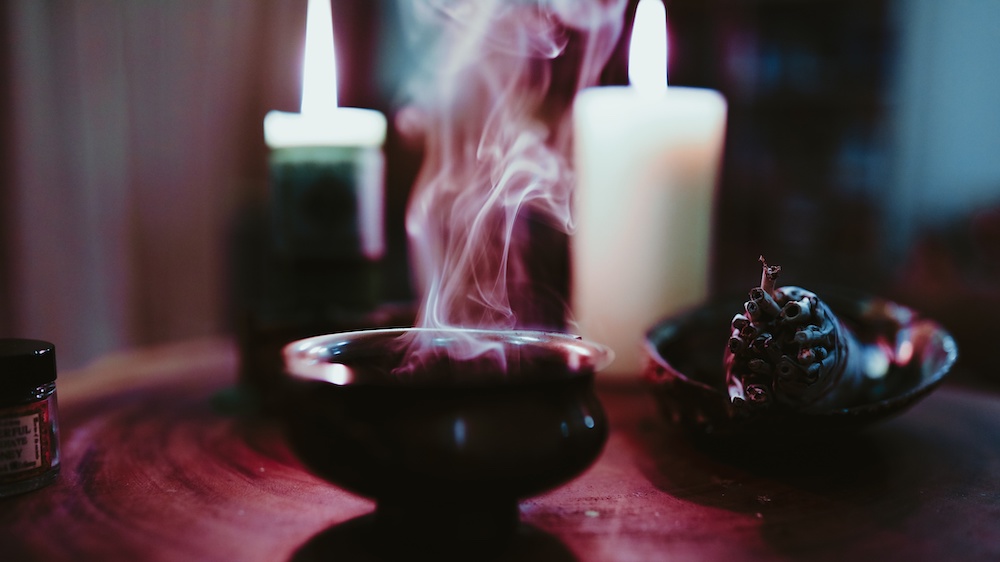If you’re interested in sharing your opinion on any cultural, political or personal topic, create an account here and check out our how-to post to learn more.
____
One foggy Louisiana night, 10-year-old Eve Batiste (Jurnee Smollett) blurted out to her Aunt Mozelle, “How do you kill someone with voodoo?” This was one of the many verbal expressions of the difference between voodoo and hoodoo showcased within the film through young Eve’s assumption of voodoo, as she sought answers from her Hoodoo practicing aunt. That film is Eve’s Bayou.
Eve’s Bayou is a film that not only gave a more thoughtful and accurate (though not entirely) representation of African traditional religions, it also created depth in the characters, as Mozelle Batiste (Debbi Morgan), the aunt of the family and the one faced with Eve’s alarming curiosity about the “dark magic” of voodoo, is a figure who showcases the ways in which hoodoo practices are used to navigate people through their issues rather than being the issue that people have to navigate through.
As a child, I appreciated this film for its ability to maintain its integrity throughout — give or take a few moments where the film alluded to the paranormal and defined voodoo inaccurately. I had even hoped for a series to spark from it, but what would that really look like? Aside from it being amazing of course, what would a series based around Black witches (the word witch being used here as a catch-all term to include hoodoo and voodoo) really look like?
Women have been on the frontline of this year’s most talked-about film and TV narratives including The Crown, The Queen’s Gambit, Mulan and Wonder Woman 1984, but when it comes to providing a proper portrayal of Black witches, despite some director’s best efforts, they are extremely lacking compared to the empowering narratives presented above.
As BreAnna Bell states in her critical piece, “How Hollywood Has Failed Black Witches, According to Real Black Witches,” “New Orleans voodoo and American hoodoo are both derived from Haitian Vodou, which is being represented more often on TV as of late.” With this in mind, it is important to take note of how hoodoo and voodoo constantly come to be defined as vastly different, which is a major inaccuracy in these narratives. Even with Eve’s Bayou, if we take the presentation of the hoodoo rootworker Mozelle and the voodoo priestess Elzora, the women never come to an understanding of one another’s practices to be related in order to create a sense of community through their similarities.
Now of course there have been varying depictions of Black witchery across TV and film, but in the entertainment industry, there is a distinction not between hoodoo and voodoo, but in witchcraft and voodoo. Why is this important? Because this distinction is deeper than dark and light. It also includes race, class and knowledge.
Through the separation of witchcraft and voodoo, it allows these concepts to be distinguishable by who is Satan and who simply plays with the satanic. Throw white witches into the mix, and here is where we find the blurring of hoodoo and voodoo as one big demonic fest. Through Timothy McMillan’s academic critique “Black Magic: Witchcraft, Race and Resistance in Colonial New England,” he states that whites were defined as “more like sorcerers — people who had to undergo certain rites — in this case, signing Satan's book, to become evil.” The accusations of witchcraft towards whites were considered low level, as them dipping their toes in satanic magic, complete with all the makings of dark fun while avoiding any direct dealings with Satan.
Oddly enough, Eve’s Bayou fails to feature any racial tension though it is set in the 1960s’ deep south. In my opinion, this is why the issue is turned inward between the practitioners, citing it as an internal issue, not of the concerns of others and not connected to anyone else who might dabble in what would be considered dark magic.
A Black witch series would ultimately need its stories to be based on African religious traditions and to portray the demonization of these traditions due to the ill attempts of outsider perspectives trying to define them. The characters would need to possess multiplicity and dimension. It also wouldn’t hurt for a Black witch to get a happy ending. Not only would this create an interesting and fresh storyline, but it would also paint a more honest and holistic representation of the traditions of African religion, the thread with which these practices are ultimately connected.
____
Roqui Clinkscales is an Anthropology major at Columbia University.
